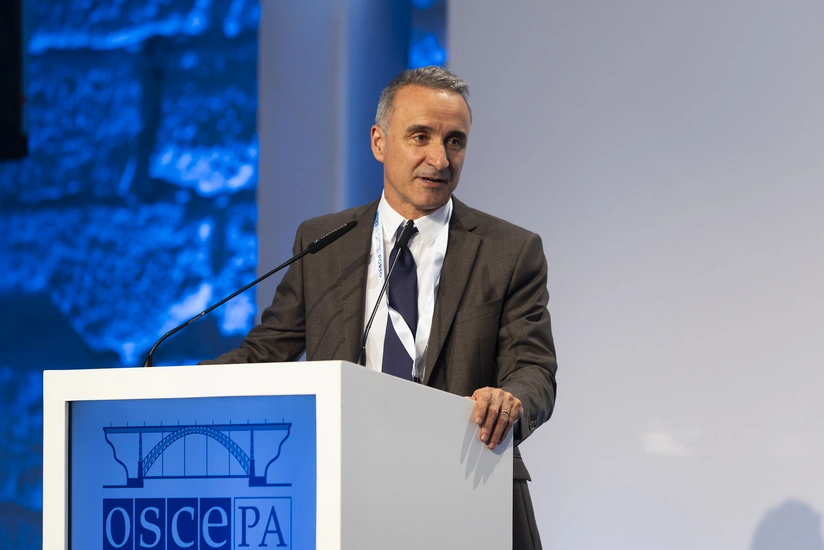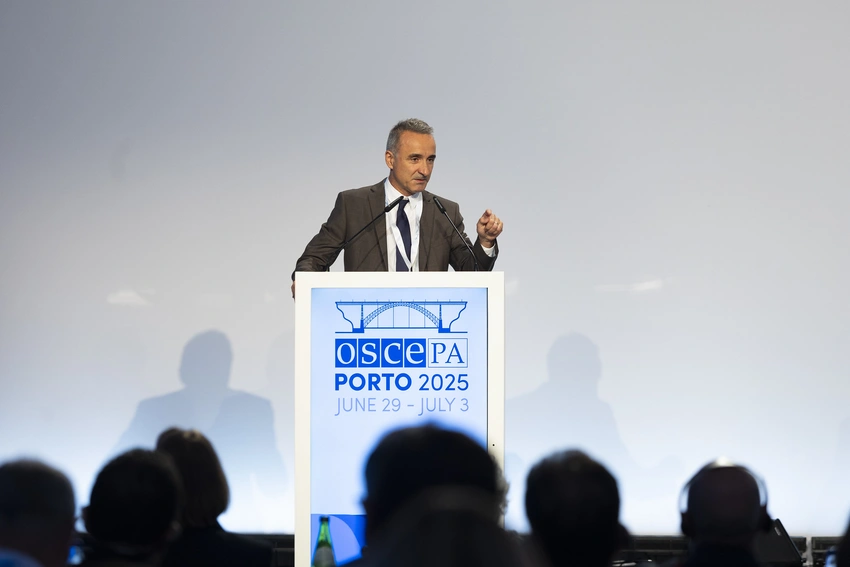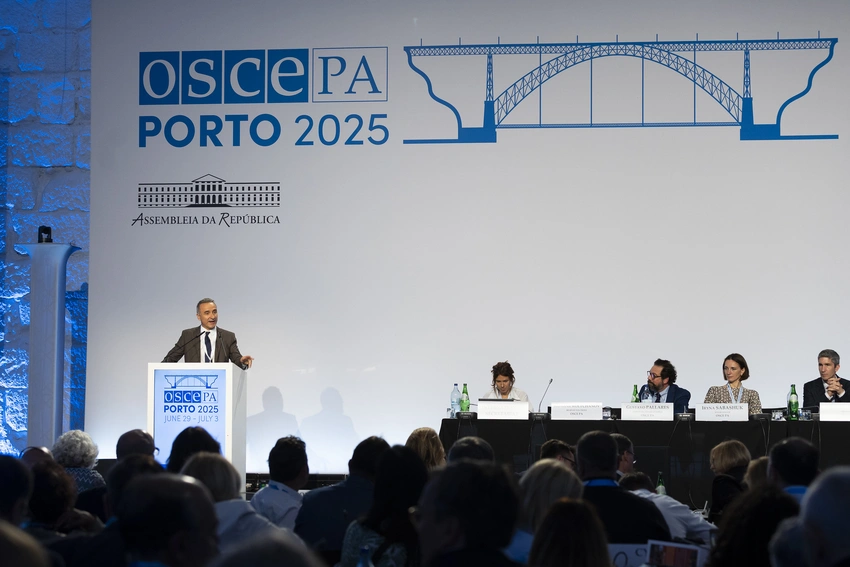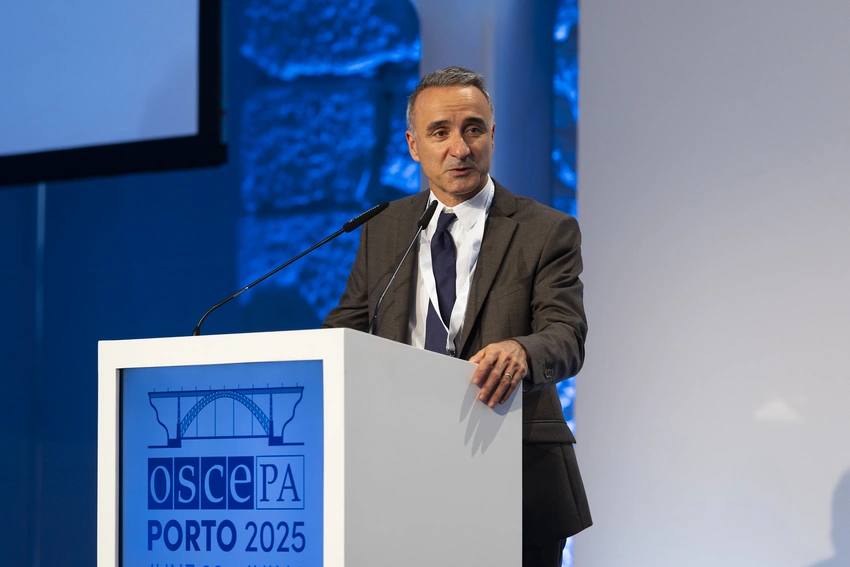OSCE PA chief vows not to miss the opportunity created by Washington meeting - INTERVIEW
- 11 September, 2025
- 12:31

The long-standing productive cooperation between Azerbaijan and other regional countries with the OSCE Parliamentary Assembly (OSCE PA) has increased the organization's attention to the South Caucasus.
In recent years, Azerbaijan's active participation in the Assembly's work, including leading the OSCE PA's Silk Road Support Group, has demonstrated the strategic nature of bilateral relations. The steps taken toward strengthening peace in the region further expand the possibilities for future cooperation.
In this context, Pere Joan Pons Sampietro, President of the OSCE Parliamentary Assembly, shared his views with Report on the organization's future plans, the outcomes of the Washington meeting, the dissolution of the Minsk Group, and other issues:
- How do you assess the results of the meeting between the leaders of Azerbaijan and Armenia in Washington?
- I consider the Washington meeting a historic step. As you know, I am from Spain, and the peace process for your region historically began with my country [referring to the Madrid Principles]. Therefore, the events of August gave me great hope for the future.
- One of the outcomes of the Washington talks was the dissolution of the OSCE Minsk Group. What contributions can the OSCE PA make in the future to the normalization of relations between Azerbaijan and Armenia?
- On September 1, the OSCE Ministerial Council adopted a decision to close the OSCE Minsk Process and related structures. We are now at the final stage of completing the Minsk process. (The organizational and technical issues related to the closure of these structures are to be finalized by December 1 at the latest by the OSCE Secretariat.) The work is progressing very quickly.

I believe that as parliamentarians, we were part of the solution between Azerbaijan and Armenia. The OSCE PA is a tool for dialogue and peace. This is not just about being close to the conflict or monitoring, but about being part of the solution. I have had many discussions with my colleagues from Azerbaijan and Armenia, and I have always thought we must look forward in this process. This is precisely one of the messages I will convey at the first opportunity at the Permanent Council (the OSCE's decision-making body composed of permanent representatives) in Vienna.
As the OSCE PA, during the upcoming autumn session in Istanbul, we will emphasize the dialogue between Armenia and Azerbaijan and serve as a platform for this. We will not miss this opportunity. After the joint declaration was signed in Washington, it is important that we become an instrument of its implementation and support. In this regard, we are at your disposal. Maybe not this year, but as the normalization process progresses positively, I believe we will be able to work together, and the Istanbul meeting will play a significant role in this framework.
- What kind of projects are currently underway or planned to deepen cooperation between Azerbaijan and the OSCE PA?
- We observe elections in Azerbaijan and participated in last year's elections as well. Overall, our involvement covers both countries but mostly consists of contacts with parliaments. We currently maintain close cooperation with Azay Guliyev, chairman of the OSCE PA's Silk Road Support Group [since 2017]. This [the Azerbaijan-Armenia normalization process] will be one of the topics we discuss, and we will advance the Silk Road network not only symbolically but also geopolitically and economically.

- What will be the main priorities on the OSCE PA agenda next year? Which place will the South Caucasus occupy among these priorities?
- Although a short time has passed since I began my term as OSCE PA President (elected at the 32nd Annual Session in Porto on July 3, 2025-ed.), Central Asia and the South Caucasus are priorities for me. This is not just because I am the President. I really consider your region a key one. At the beginning of the 21st century, I worked on matters concerning the South Caucasus, and I believe you have the potential to serve as a kind of hub between West and East. However, it would be better if this was done jointly, considering logistics, economic efficiency, and other factors. The reason is, as I mentioned earlier, your role as a bridge between East and West and North and South.
Regarding OSCE PA's priorities, I believe the organization should be more politically active and also actively involved in election observation processes. It is essential to better monitor elections. Secondly, we intend to focus on new challenges-climate change, artificial intelligence, populism, media freedom, and so on. But primarily, we should be part of conflict resolution and demonstrate more presence through election observation. I will present the action plan in Istanbul since I will serve as President for the next two years.
- How has the ongoing war in Ukraine affected the OSCE PA agenda? Do you think it sidelines other regional issues, including those in the South Caucasus?
- For me, one of the main issues is to avoid double standards. Yes, it is important to be involved in Ukraine and be part of the solution there. But at the same time, involvement in the Middle East, Gaza, and other places is equally vital. We cannot discuss one thing here and take a completely different stance on Central Asia. We must avoid double standards.
I believe global security cannot be achieved without ensuring security in Europe. So the upcoming challenges are extremely important. We have entered a new era. Europe is facing a major test. While the first quarter of this century saw a move toward liberal globalization, now we are heading toward global authoritarianism. The war in Ukraine, COVID-19, and the failures to adequately respond to public fears create new challenges.

The European region is undoubtedly affected by conflicts in Ukraine and the Middle East, and these are interconnected, creating new dynamics. The current situation in Gaza also creates new dynamics among many countries. I think two parallel dynamics exist, and until both conflicts are resolved or at least medium-term ceasefires are achieved, global security cannot be discussed. The scenes we witness today in Ukraine and Gaza are horrifying.
- Are there any plans for your visit or the visit of an OSCE PA delegation to the South Caucasus region in the near future?
- Our visit will definitely take place. I have discussed it with Gaya Mammadov, the head of Azerbaijan's OSCE PA delegation. We are also in contact with Azay Guliyev, Chairman of the OSCE PA's General Committee on Economic Affairs, Science, Technology, and Environment.
